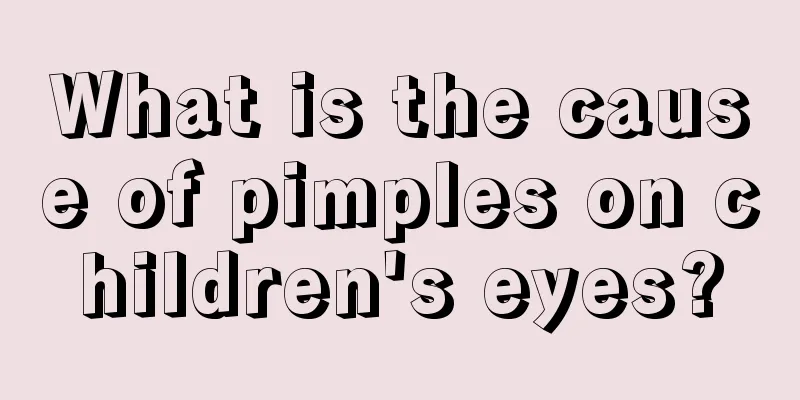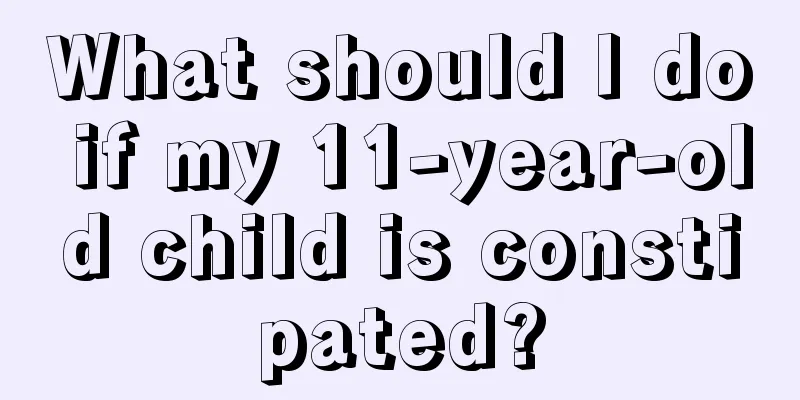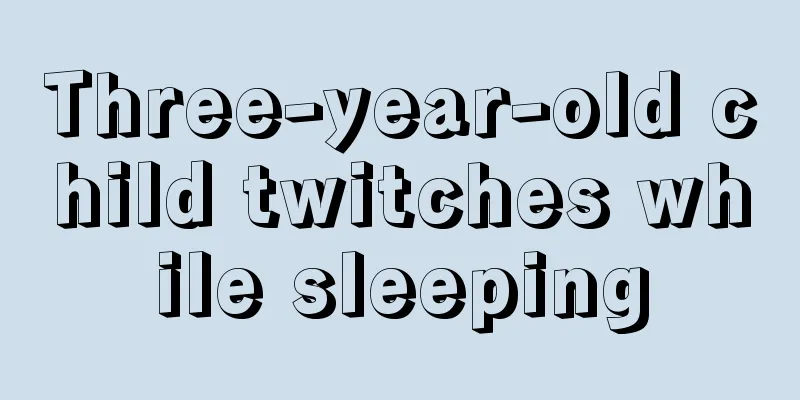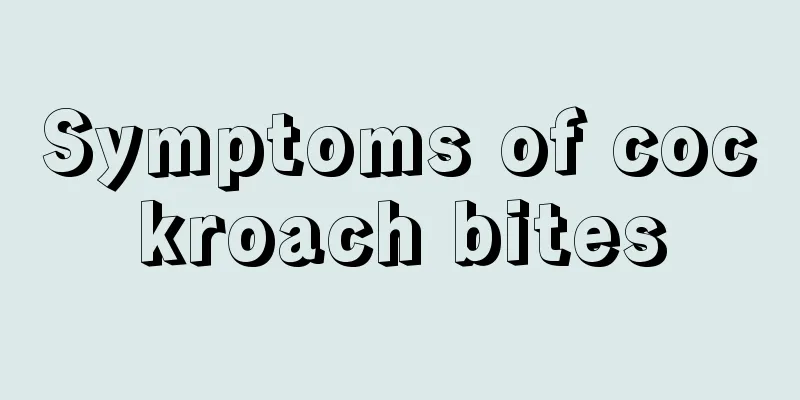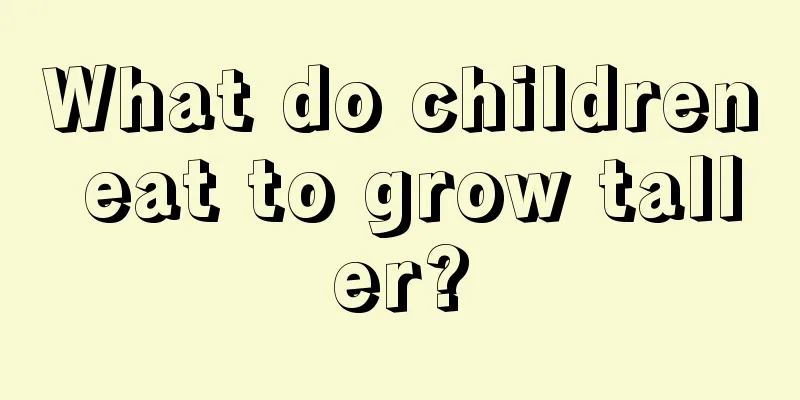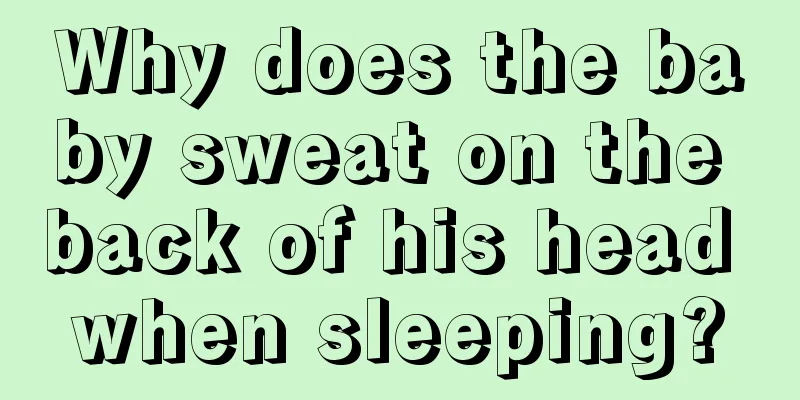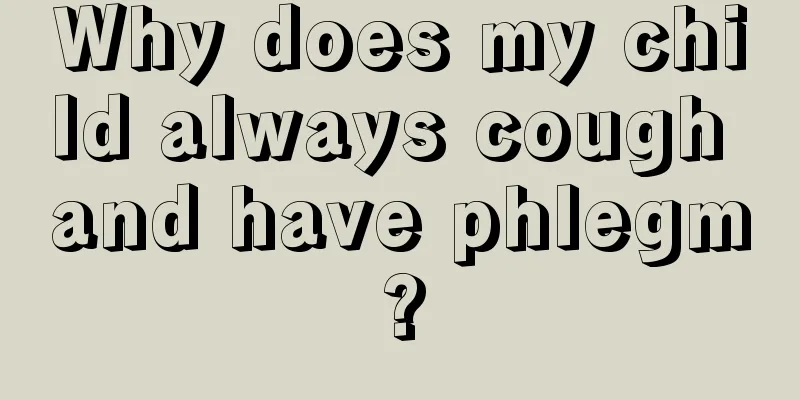The reason why the baby still drools at the age of two
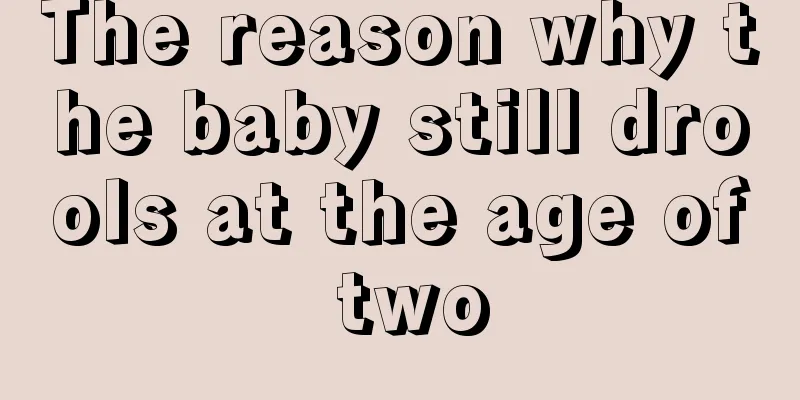
|
Many families are particularly worried about their two-year-old babies drooling, because frequent drooling can cause harm to their bodies. Therefore, many parents want to fully understand the reasons why their babies are still drooling at the age of two. The following content provides a detailed introduction to many parents. Parents who want to understand the reasons as soon as possible can take a comprehensive look. Drooling is medically known as sialorrhea or increased salivation. There are many causes of drooling. Drooling is common in children aged 6 months to 3 years and is mostly normal. It is uncommon for newborns to drool. Because the salivary glands of newborns are underdeveloped and saliva secretion is very little, saliva secretion begins to increase at 3 to 4 months. After 6 months, due to changes in diet, the nerves are stimulated, causing increased saliva secretion, and drooling begins to occur. In addition, babies have shallow mouths and cannot regulate excess liquid in their mouths, so drooling occurs. As they grow older, their teeth erupt, the depth of their mouths increases, and infants and young children gradually learn to control excess saliva by swallowing, and the drooling phenomenon gradually disappears. The above drooling is normal. However, some children drool and cry and are restless, refuse to eat, and cry more severely when eating, or have a fever. At this time, you should carefully check the oral mucosa, i.e. the tip of the tongue, cheeks, and lips for ulcers. Ulcers can cause pain and increased salivation leading to drooling, and should be treated promptly. Some drooling is caused by sequelae of encephalitis, facial nerve paralysis and cretinism, which lead to disorders in regulating saliva secretion and swallowing function. In this case, you should go to the hospital for a clear diagnosis and treatment. The baby is in the period of gradual eruption of deciduous teeth. There are many tooth germs buried in the gums. These tooth germs must break through the obstruction of the gums to grow out, which will inevitably stimulate the gums and make them itchy. Under the stimulation of nerve reflex, the salivary gland secretion will increase. The baby's mouth is shallow and the oral capacity is small. The baby cannot use swallowing to regulate the saliva in the mouth. When there is a little more saliva in the mouth, it will flow out naturally. The baby's ability to inhibit saliva secretion and swallowing function are slightly poor. He often drools. Common causes of drooling The main reasons are as follows: 1. When you first wear dentures, you are not used to it and feel like there is a foreign body in them, which stimulates the secretion of saliva. The retention of saliva stimulates the mucous membrane and causes nausea. Pain, redness, swelling and ulcers in the mucous membrane can all cause increased saliva secretion. 2. Oral diseases such as caries, acute and chronic inflammation, and periodontal disease. 3. Oral mucosal diseases, such as patients with recurrent oral ulcers, herpetic stomatitis, and chronic recurrent aphthous stomatitis. There are too many missing teeth in the mouth, which causes more saliva to flow when speaking and the lips cannot hold it. 4. Alzheimer's disease, cerebral atrophy, and other brain diseases. 5. Any stimulation to the mucous membranes of the digestive tract, such as the esophagus and stomach, can reflexively lead to saliva secretion. 6. The sense of smell, vision and hearing can perceive the color, aroma and taste of food. Eating sour, sweet, bitter and spicy food forms conditioned stimulation, which induces the excitement of the saliva secretion center through the corresponding centers and cerebral cortex, causing a large amount of saliva secretion. The reason why the baby is still drooling at the age of two. After understanding the above content, I believe many parents have fully understood the reasons. Therefore, after a comprehensive understanding, in order for their children to recover as soon as possible, they should go to a large hospital for a comprehensive diagnosis. After finding out the cause, give the child comprehensive treatment as soon as possible to stop drooling. |
<<: The harm of drooling in three and a half month old babies
Recommend
What are the symptoms of insufficient qi and blood in children?
What are the symptoms of insufficient qi and bloo...
Taboos for eczema on the face of a one-month-old baby
After a child is born, its skin is not yet fully ...
2-year-old baby took too much antipyretic medicine
Usually when a baby has a cold, parents will prep...
How should allergic rhinitis in children be treated?
Many parents are afraid to give their children ho...
What are the symptoms of autism in children?
Nowadays, many children suffer from autism due to...
Can children eat grapefruit when they have a cold?
A cold is just a minor illness for us adults, but...
Signs that your baby is not full
New mothers who have just given birth always have...
What should I do if my premature baby fails the hearing screening?
In life, newborn babies need to undergo some newb...
What hairstyles are good for 11-year-olds?
An 11-year-old girl is at the age of innocence, l...
What to do if your child has a cold or cough
Cold is a common disease in life. Anyone can catc...
Reasons for children sweating while sleeping
Sweating is a very normal physiological phenomeno...
Reasons for hot soles of baby's feet
The baby's physical health is the most import...
What to do if your child gets redness and swelling after vaccination
Is it normal for children to have redness and swe...
What to do if baby is addicted to milk?
The main food for babies is breast milk, and moth...
Diet to prevent baby colds in summer
Summer has arrived. In this season you will find ...
